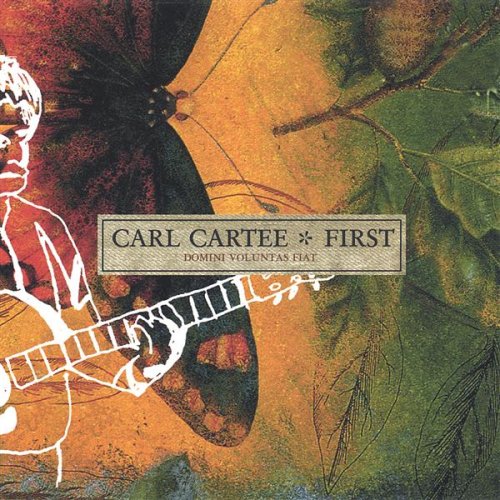Because I do not hope to turn again
Because I do not hope
Because I do not hope to turn
Desiring this man's gift and that man's scope
I no longer strive to strive towards such things
(Why should the aged eagle stretch its wings?)
Why should I mourn
The vanished power of the usual reign?
Because I do not hope to know
The infirm glory of the positive hour
Because I do not think
Because I know I shall not know
The one veritable transitory power
Because I cannot drink
There, where trees flower, and springs flow, for there is
nothing again
Because I know that time is always time
And place is always and only place
And what is actual is actual only for one time
And only for one place
I rejoice that things are as they are and
I renounce the blessed face
And renounce the voice
Because I cannot hope to turn again
Consequently I rejoice, having to construct something
Upon which to rejoice
And pray to God to have mercy upon us
And pray that I may forget
These matters that with myself I too much discuss
Too much explain
Because I do not hope to turn again
Let these words answer
For what is done, not to be done again
May the judgment not be too heavy upon us
Because these wings are no longer wings to fly
But merely vans to beat the air
The air which is now thoroughly small and dry
Smaller and dryer than the will
Teach us to care and not to care Teach us to sit still.
Pray for us sinners now and at the hour of our death
Pray for us now and at the hour of our death.
[T.S. Eliot, Ash-Wednesday, 1930.]
09 March 2011
reflecting: Ash Wednesday
04 February 2011
reflecting: Mark 1:1-8
01 April 2010
April Fools & Holy Weak
25 March 2010
"Forgiveness is the Final Form of Love."
11 March 2010
Confession: of Light, Mirrors, Basins & Towels
Visit the original post at allgather.org.
04 March 2010
The Priestly Man In Black

After the last couple weeks, mulling over the image of our priesthood (1 Peter 2:9) and having conversations about what it means to be a priest, I’ve come to the conclusion that the word “priest” itself is sensitive and charged. People conjure images of everything from witchdoctors and monks to the Pope and Philip Seymour Hoffman. The word may carry positive connotations or extremely negative ones. Given that this word and the office it represents is so polarizing, how can we expect to minister and serve as priests when often times priests are exactly who people don’t want to be in contact with (contact and connection are after all what we are after here!)?
These men in black serve as our point of reference to what it means to be a priest. But I want to offer another image, the Man In Black, as an illustration of our identity as a holy people, and a royal priesthood belonging to our God. This last Friday marked what would have been Johnny Cash’s 78th birthday. To celebrate I donned my black t-shirt and sifted through the liner notes of the box set I got for Christmas a few years back. In doing so I was struck by an episode that captured Rick Rubin, Cash’s legendary bearded, Buddhist producer, describing Cash’s spirituality.
When Johnny and June were staying at my house, before dinner he got out a big old Bible and had everybody hold hands and did a prayer. It was fantastic. You felt blessed. Because he comes from such a deep place of faith, that you know it’s real. You don’t have to believe; all you have to believe in is him, and if you believe in him, you go for the ride.
Right when you think that Rubin would dismiss Johnny’s bible-belt piety with an eye-roll, he instead is drawn in, connected to Something. He felt blessed and he went “along for the ride” because it was obvious that Cash was so deeply connected to God.
I pray that we don’t get distracted by our own or other’s preconceptions about priests. I pray instead that our priesthood is surprising. Surprising in its depth and authenticity; undeniable in its reality and genuineness.
I pray that when we encounter those who do not know God, our presence beckons them to go for a ride.
Link to original post:
http://www.allgather.org/2010/03/04/the-priestly-man-in-black
03 March 2010
25 February 2010
Priests? Really?

17 February 2010
processing: Ash Wednesday- T.S. Eliot

07 February 2010
praying: For Super Bowl Sunday
04 February 2010
processing: Preaching, Praying & Paying Attention

14 January 2010
praying: "Neighbors in Pain": for Haiti
20 December 2009
Advent Week 4: You Have Stirred My Soul
14 December 2009
Advent Week 3: Here Comes the Sun Again
05 December 2009
Advent Week 2: "The Irreverent Doctrine of the Incarnation"

29 November 2009
Advent Week 1: Hope
26 November 2009
praying: Song of Thanks

23 November 2009
praying: For/With Astonishment
“A quite specific astonishment stands at the beginning of every theological perception, inquiry, and thought, in fact at the root of every theological word. This astonishment is indispensable if theology is to exist and be perceptually renewed as a modest, free, and happy science. If such astonishment is lacking, the whole enterprise of even the best theologian would canker at the roots. On the other hand, as long as even a poor theologian is capable of astonishment, he is not lost to the fulfillment of his task. He remains serviceable as long as the possibility is left open that astonishment may seize him like an armed man.”Karl Barth, Evangelical Theology: An Introduction, p. 64.What I'm saying is I think like is staggering and we're just used to it. We are all like spoiled children no longer impressed with the gifts we're given- it's just another sunset, just another rainstorm moving over the mountain, just another child being born, just another funeral.Donald Miller, A Million Miles in a Thousand Years, p.58.
01 November 2009
praying: on All Saints Day

29 September 2009
praying: on the Feast of St. Michael and all Angels (from the BCP)

O EVERLASTING God, who hast ordained and constituted the services of Angels and men in a wonderful order; Mercifully grant that, as thy holy Angels always do thee service in heaven, so, by thy appointment, they may succour and defend us on earth; through Jesus Christ our Lord. Amen.
THERE was war in heaven: Michael and his angels fought against the dragon; and the dragon fought and his angels, and prevailed not; neither was their place found any more in heaven. And the great dragon was cast out, that old serpent, called the Devil, and Satan, which deceiveth the whole world: he was cast out into the earth, and his angels were cast out with him. And I heard a loud voice saying in heaven, Now is come salvation, and strength, and the kingdom of our God, and the power of his Christ: for the accuser of our brethren is cast down, which accused them before our God day and night. And they overcame him by the blood of the Lamb, and by the word of their testimony; and they loved not their lives unto the death. Therefore rejoice, ye heavens, and ye that dwell in them. Woe to the inhabiters of the earth and of the sea! for the devil is come down unto you, having great wrath, because he knoweth that he hath but a short time.
AT the same time came the disciples unto Jesus, saying, Who is the greatest in the kingdom of heaven? And Jesus called a little child unto him, and set him in the midst of them, and said, Verily I say unto you, Except ye be converted, and become as little children, ye shall not enter into the kingdom of heaven. Whosoever therefore shall humble himself as this little child, the same is greatest in the kingdom of heaven. And whoso shall receive one such little child in my name receiveth me. But whoso shall offend one of these little ones which believe in me, it were better for him that a millstone were hanged about his neck, and that he were drowned in the depth of the sea. Woe unto the world because of offences! for it must needs be that offences come; but woe to that man by whom the offence cometh! Wherefore if thy hand or thy foot offend thee, cut them off, and cast them from thee: it is better for thee to enter into life halt or maimed, rather than having two hands or two feet to be cast into everlasting fire. And if thine eye offend thee, pluck it out, and cast it from thee: it is better for thee to enter into life with one eye, rather than having two eyes to be cast into hell-fire. Take heed that ye despise not one of these little ones; for I say unto you, That in heaven their angels do always behold the face of my Father which is in heaven.








